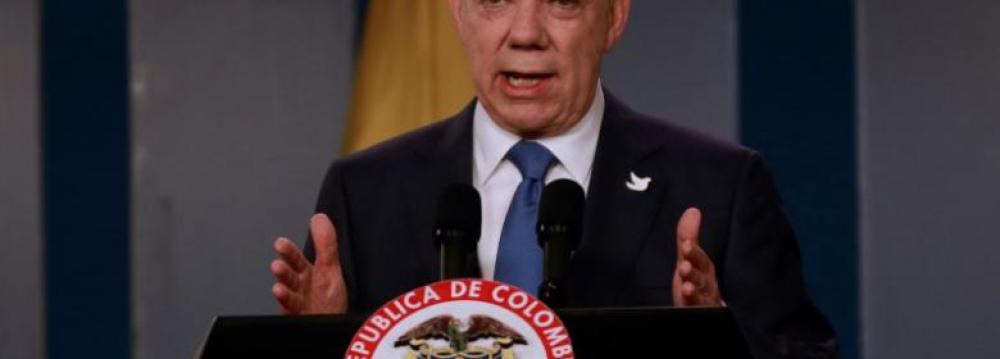Colombian President Juan Manuel Santos won the 2016 Nobel Peace Prize on Friday in a surprise choice after Colombians voted “No” to an agreement he signed with Marxist rebels to end 52 years of war.
Santos has promised to revive the peace plan even though Colombians, in a referendum on Sunday, narrowly rejected the accord. Many voters believed it was too lenient on the Revolutionary Armed Forces of Colombia (FARC) guerrillas, Reuters reported.
“The award should also be seen as a tribute to the Colombian people,” committee leader Kaci Kullmann Five said when announcing the prize.
“Voters did not say “No” to peace but to the agreement,” she said.
The award pointedly excluded FARC guerrilla leader Rodrigo Londono, better known by his nom de guerre Timochenko, who signed the deal with Santos.
Some Nobel watchers had taken Colombia off their lists of favorites after the referendum “No”.
“The fact that a majority of the voters said “No” to the peace accord does not necessarily mean that the peace process is dead,” the committee said.
“This makes it even more important that the parties, headed by President Santos and FARC guerrilla leader Rodrigo Londono, continue to respect the ceasefire.”
The Nobel Peace Prize, worth 8 million Swedish crowns ($930,000), will be presented in Oslo on Dec. 10.
The award came a day after a leader of Colombia’s “no” campaign against peace with FARC has resigned from the Democratic Center party. Prosecutors opened an investigation after Juan Carlos Velez said “no” campaigners used “misleading” tactics.
Juan Carlos Velez, who helped torpedo peace with FARC in Sunday’s referendum, resigned from the Democratic Center (CD) late Thursday. The attorney general will investigate whether statements made by Velez in a newspaper interview constitute admitting to a crime, DPA reported.
“To the members of the Democratic Center, I reiterate my apologies and offer my renunciation from the party for the damage that I might have caused with my imprecise words in the heat of a moment of elevated emotions,” Velez said in a statement.
In an interview with La Republica, Velez said the CD had steered social media discussion away from the content of the accord and focused instead on fomenting “indignation” before Colombians voted 50.2% to 49.8% against the accord.
“We wanted people to go to vote angry,” Velez told the newspaper.
The CD has now joined talks with the government on proposed amendments to create common ground on which to salvage the deal.


